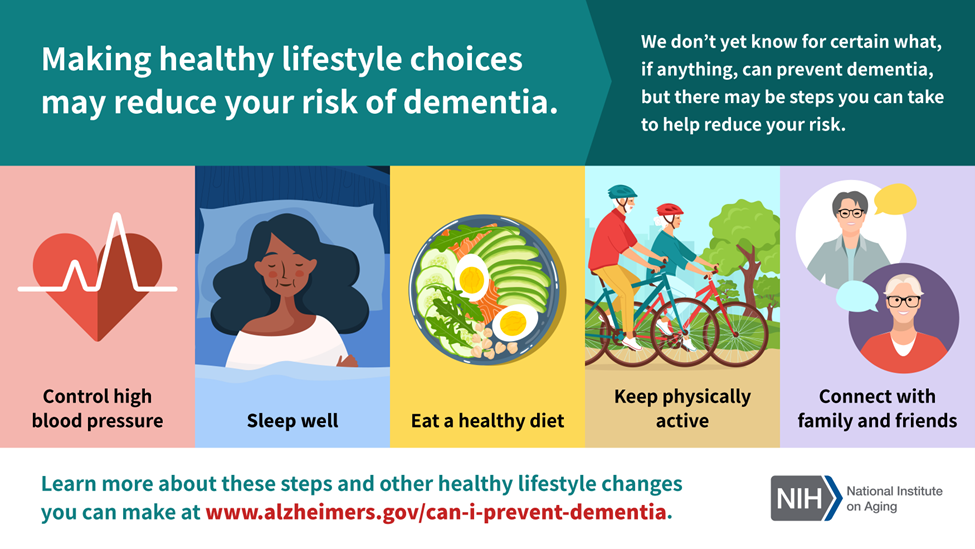What Is Mild Cognitive Impairment?
Mild cognitive impairment is a common condition in older adults, but a recent survey finds that a large majority of Americans know little or nothing about it.
While most everyone forgets things or loses things from time to time, mild cognitive impairment involves more significant problems, such as losing things often, regularly having difficulty coming up with words, or forgetting to go to important events. It can include problems with memory, language or judgment. The changes and problems are enough to be noticed by family and friends but not significant enough to impact a person’s daily function and activities.
An estimated 10% to 20% of people over age 65 have mild cognitive impairment, and the risk is greater with older age. For many people, the symptoms of mild cognitive impairment stay the same or even improve. However, people with mild cognitive impairment are at a greater risk of developing Alzheimer’s disease and other dementia. About 10% to 15% of people with mild cognitive impairment will develop dementia each year.
Despite how common it is, most adults are not familiar with mild cognitive impairment, and it often goes undiagnosed. (Alzheimer’s Association 2022; Liu 2023). A recent Alzheimer’s Association survey found
- More than 80% of Americans know little or are not familiar with mild cognitive impairment.
- When prompted with a description of mild cognitive impairment, a large majority (85%) say they would want to know if they had Alzheimer’s disease early, including during the mild cognitive impairment stage (54%).
- Yet only 40% say they would talk to their doctor right away when experiencing symptoms of mild cognitive impairment.
A recent study of hundreds of thousands of people enrolled in Medicare found that in primary care clinics, only about 8% of cases were diagnosed. (Liu 2023) The study authors conclude there is “an urgent need to improve early detection in primary care.”
Prevention and treatment
While mild cognitive impairment can’t be prevented, changes in lifestyle factors can reduce a person’s risk. Staying physically active, connecting with friends and family, eating healthy foods, controlling blood pressure, and getting enough sleep can help keep people healthy and reduce the risk of dementia. (See infographic below.)

Researchers are also working on ways to address mild cognitive impairment and improve function. One study looked at the impact of a remote cognitive and functional skills training program among older adults with normal cognition and mild cognitive impairment. The researchers found significant improvement in real-world performance of technology-based tasks. The researchers conclude that the remote training is both practical and effective in benefiting real-world functioning, and the program can help empower individuals and help them maintain autonomy as they age.
If you have concerns, it’s important to discuss them with your doctor. Problems could be caused by a medication or treatable medical condition. If you have mild cognitive impairment, it’s important to see a doctor or specialist regularly to help monitor changes in memory and thinking over time. In addition, as progress is made on treatments for Alzheimer’s disease, early identification of cognitive and memory issues will be increasingly important.
More Information and support: The Alzheimer's Association
- 24/7 Helpline: 800-272-3900
- Find a local support group
- Online community.
References
- Alzheimer’s Association - Mild Cognitive Impairment.
- Alzheimer’s Association. 2022. Special Report: More Than Normal Aging: Understanding Mild Cognitive Impairment (.pdf)
- Dowell-Esquivell, C., et al. 2023. Computerized Cognitive and Skills Training in Older People with Mild Cognitive Impairment: Using Ecological Momentary Assessment to Index Treatment-Related Changes in Real-World Performance of Technology-Dependent Functional Task. The American Journal of Geriatric Psychiatry, doi: https://doi.org/10.1016/j.jagp.2023.10.014
- Liu, Y., Jun, H., Becker, A. et al. 2023. Detection Rates of Mild Cognitive Impairment in Primary Care for the United States Medicare Population. J Prev Alzheimer’s Disease. https://doi.org/10.14283/jpad.2023.131
- National Institutes on Aging, National Institutes of Health. What is Mild Cognitive Impairment?
